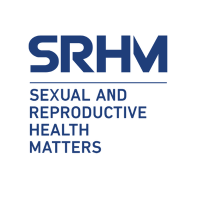What do oral contraceptive pills have to do with human rights abuses in sport?
Introduction
Sport may seem an unexpected place to find oral contraceptive pills (OCPs) at the centre of alleged violations of human rights and medical ethics. However, this is precisely the case in ongoing legal challenges to “sex testing” regulations that restrict eligibility for the women’s category of athletics competition, two of which will be heard in spring 2024. In order to remain in competition, women targeted by the regulations must submit to unwanted and medically unnecessary interventions to lower their natural testosterone levels below a specified threshold. World Athletics, which governs the sport of track and field worldwide, promotes OCPs as the primary method for meeting this condition of eligibility.
Whereas OCPs are typically used to enhance autonomy, the opposite is true in the context of sex testing in sport: instead of enabling choice and control over one’s body, the use of OCPs as a condition of regulatory compliance severely limits both. The athletes subjected to this coercive control are women diagnosed with certain “differences of sex development”‡ and are overwhelmingly women of colour from the Global South. The imposition of sex testing regulations thus echoes the colonial legacy of controlling the bodies and reproduction of women of colour, including through coercive contraception.
Many of the women affected by World Athletics’ sex testing regulations, along with various UN entities, leading NGOs, professional medical associations, and others, maintain that sex testing regulations contravene international human rights norms and principles of medical ethics. However, despite multiple legal challenges over the last decade, courts have largely avoided the application of these standards, while deceptively suggesting that they have taken a rights-based approach. In doing so, the legal process has functioned not as a “simple transcription device for science, automatically writing into legal decisions whatever facts science has” but as a knowledge-making enterprise. The Court of Arbitration for Sport (CAS), in particular, has generated significant misunderstandings about OCPs, to the detriment of human rights and medical ethics.
With two important upcoming cases, we urgently revisit how faulty assumptions about OCPs – introduced by World Athletics and their recruited experts, and then readily accepted by the courts – have led to the sidestepping of human rights and medical ethics and, in so doing, allowed sex testing regulations to persist. As a result, a class of drugs so key to women’s bodily autonomy has come to be instrumental in curtailing that very right in the context of sport. Illuminating the problematic assumptions in the factual record produced in the central case challenging sex testing regulations, brought by South African runner Caster Semenya, reveals the human rights violation and unethical medical practice at the core of these regulations: a coerced “medical” intervention.
Citation: Karkazis, K., & Krech, M. (2024). What do oral contraceptive pills have to do with human rights abuses in sport? Sexual and Reproductive Health Matters, 1–13. https://doi.org/10.1080/26410397.2024.2342105
Read the full article here.
